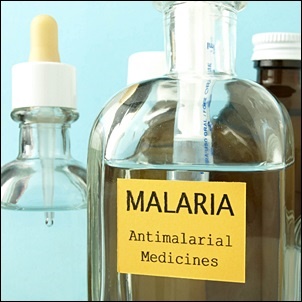
Malaria deaths worldwide have fallen by 60 percent since 2000, the UN said on Thursday, with improved diagnostic tests and the massive distribution of mosquito nets aiding dramatic progress against the disease.
Fifteen years ago, an estimated 262 million malaria cases killed nearly 840 000 people.
Read: How the world can cut malaria cases by 90% in the next 15 years
Projections for 2015 indicate that some 214 million cases are likely to cause 438 000 deaths, according to a joint report from the World Health Organisation (WHO) and the United Nations children's agency (UNICEF).
"Global malaria control is one of the great public health success stories of this century," WHO Director-General Margaret Chan said while presenting the report at Britain's Houses of Parliament.
Had malaria infection and death rates remained unchanged since 2000, another 6.2 million people would have died, according to the report.
Chan raised hopes that the disease could one day be eradicated with more investment in vaccines and medicines.
"Malaria has been tamed but by no means defeated. You either surge ahead or you sink," she said, noting that children under five still make up the overwhelming majority of malaria victims.
Read: New drug compound may beat malaria with single dose
Most of the gains were recorded in Asia and the Caucasus, but in Africa the picture was less encouraging.
Sub-Saharan nations accounted for nearly 80 percent of global malaria deaths this year and efforts to curb infection rates in the region lagged substantially behind other parts of the world.
Chan and UNICEF executive director Anthony Lake warned that because of this "uneven" progress, more attention and resources had to be paid to the hardest hit nations.
"Eliminating malaria on a global scale is possible - but only if we overcome these barriers and accelerate progress," Lake and Chan said in a joint statement.
Highlighting the steps that helped curb infection rates, the report said that about one billion insecticide-treated nets had been distributed in Africa since 2000.
At the start of the millennium, less than two percent of children under five were sleeping under the specialised nets, a figure that has risen to 68 percent over the last 15 years.
With mosquitoes largely circulating at night, the report indicated that this mass distribution of nets in high malaria areas had helped significantly bring down infections, especially among children.
Read: Modern housing could cut risk of malaria by up to half
Nets have also got better, the report said, citing new technology developed since 2000 that eliminated the need for insecticide to be re-applied every few years.
Britain has been one of the leading proponents of bed nets and Justine Greening, the minister for international development, promised Thursday that London would continue to invest in programmes "to end malaria once and for all."
But she also called on governments of the countries worst affected to boost their own efforts.
"We want to see countries stand on their own two feet," she said.
A persistent problem, especially in Africa, has been a tendency among patients and medical workers to treat all fever-like symptoms as malaria, which has hurt the supply of treatment available to those who actually have the disease.
Read: Malaria – one mosquito bite can kill you
But the introduction of new testing kits that give fast and accurate results has helped medical workers in the developing world distinguish between malarial and non-malarial fevers more quickly, "enabling more timely and appropriate treatment," the report said.
Increased urbanisation worldwide had also helped as people living in cities are often closer to health services.
Funding for malaria has increased 20-fold since 2000, UNICEF and WHO said, but they noted that more resources were needed to step up the fight against the disease.
The two UN agencies set a target to reduce infections by another 90 percent by 2030.
"We know how to prevent and treat malaria," UNICEF's Lake said. "Since we can do it, we must."
Despite the good news, former Namibian health minister and malaria campaigner Richard Kamwi warned at the London presentation that the "biggest mistake we can make is to pat ourselves on the back."
"We have not won the war," he stressed.
Also read:
Fund launched to seek cures for African diseases
One million Africans to catch malaria from newly-constructed dams




 Publications
Publications
 Partners
Partners















